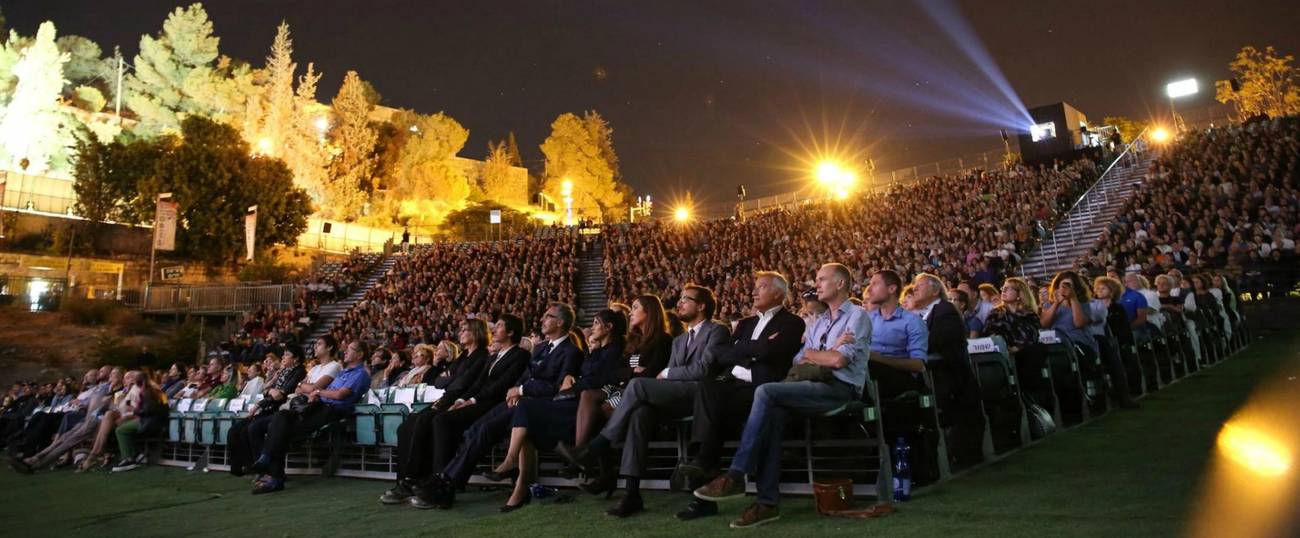Jerusalem Film Festival Opens Amid Political Turmoil
It’s filmmakers versus the Minister of Culture in a struggle for the future of Israeli cinema




The 35th edition of the Jerusalem Film Festival, which opened last Thursday, comes at a delicate time for Israeli cinema. Though the festival is home to countless screenings of international films, the premieres of the latest crop of Israeli feature films hold special pride of place. In recent weeks, many local filmmakers fear that the nature of those films may change inexorably, all due to a piece of legislation dubbed the Regev Cinema Reform, so named for its champion, the Minister of Culture Miri Regev.
In an industry still heavily reliant on government funds any political intervention is greeted with intense suspicion. “The village is aflame,” Avi Nesher, perhaps the most prominent Israeli director working today, told Yediot Aharonot in a recent interview. “There is a real and clear danger that the golden age of Israeli film that we’ve seen for the past fifteen years will be destroyed,” Nesher said. “What Regev and her committee have done is akin to appointing a committee … to dismantle the Israeli high-tech industry. [Israeli cinema is] our greatest ambassador against BDS. This is a blow to our national resilience. It’s a deeply unpatriotic act.”
Regev’s reform consists of two key elements. The first is a major change to the way Israeli film funds do their business. The funds are non-profits that funnel public money into specific film projects, chosen by a rotating cadre of lectors, all industry veterans. Regev plans to require that the lectors be selected from a list assembled by her ministry. The fear is that the industry veterans will soon be replaced by political insiders, who will fund only the most politically convenient of screenplays. Regev also plans on implementing a new approach to funding, dubbed “wisdom of the crowds”. Rather than receiving full funding in the pre-production stage, films will be partially funded, and only those that go on to become box office hits after their release will receive full funding, post-factum: a strong incentive to aim for the lowest common denominator and to avoid risky, political fare.
At the last moment, the opposition–with the canny assistance of Knesset speaker Yuli Edelstein, a Regev nemesis–managed to halt the reforms, for now at least (the Knesset reconvenes after the high holidays). But Regev has shown no signs of toning what she says is her attempt to pluralize a film industry that is clubby to a fault, which only tells Tel Aviv-centric stories.
To see why Regev’s reforms are unnecessary at best, one need look no further than the film festival’s opening night selection. The Unorthodox, is a thrilling new feature by Eliran Malka, director of the hit TV show Shababnikim. Unfortunately not a screen adaptation of the similarly-named podcast, The Unorthodox is a highly fictionalized account of the founding of Shas, the ultra-orthodox Sephardic party, in the run-up to the municipal elections in Jerusalem some thirty-odd years ago. What may sound like the stuff of impassioned social drama has the narrative thrust of a heist film and the repartee of a screwball comedy.
Shuli Rand plays Yaakov Cohen, the owner of a printing press in Jerusalem. When Cohen’s daughter gets kicked out of her Ashkenazi-run ulpana, he is inspired to run for city hall, convinced that only an electoral success will gain Sephardim the respect they deserve, particularly from the orthodox Ashkenazi establishment. Hilarity ensues, as Cohen and his motley crew attempt to recruit respected rabbinical figures to their cause, and learn–the hard way–the basics of political campaigning. Rand, best known for writing and starring in Ushpizin, is especially terrific. The finest actor in Israel, it turns out, is a baal teshuva who averages one film role every decade or so, but it is always worth the wait.
Regev did not attend the traditional opening ceremony in the Sultan’s Pool beneath the Old City walls, but in a Facebook post she wrote that she is “so happy that the pluralism policy that I’ve led is bearing fruits and is reflected in the choice to open the festival [with The Unorthodox]”. Regev is having it both ways. After all, the film – Sephardic, religious, nominally right wing, and deeply entertaining – was funded by the Israeli Film Fund, which has attracted special ire from Regev. And The Unorthodox is no outlier: the Israeli films premiering at the festival form a veritable mosaic of Israeli society.
Better, then, to listen to the wise words of The Unorthodox’s director, Eliran Malka. “A person can identify with and even love people who are not from his tribe, who don’t listen to the same music or vote for the same party,” he remarked before the screening of his film. “Any movie that can bring the tribes closer together is one worth making, and one worth seeing.”
Tal Kra-Oz is a writer based in Tel Aviv.